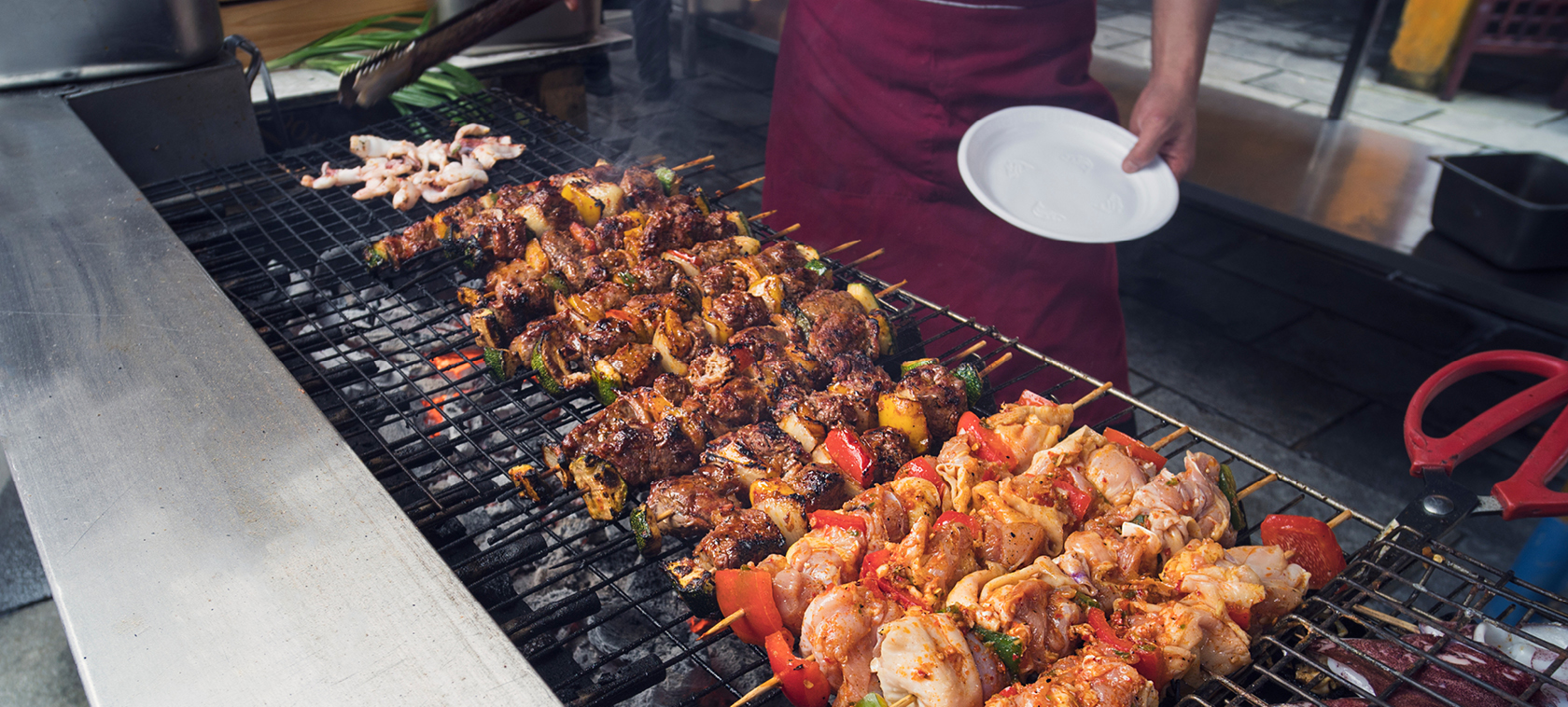As we saw in part 1 of Food waste: From farm to fork and beyond the issue of food waste spans the whole supply chain in the UK. There are some steps being made already in the UK through the work of WRAP and its supporting organisations. Let’s take a look at what else is happening in the fight to reduce food waste.
And beyond
Objectives to reduce food waste go even further than the UK’s target of reducing food waste by half in 2025. Fighting the cause on a global scale are the Champions 12.3:
‘a coalition of executives from governments, businesses, international organizations, research institutions, farmer groups, and civil society dedicated to inspiring ambition, mobilizing action, and accelerating progress toward achieving SDG Target 12.3 by 2030. Members are senior executives of these institutions, including ministers, chief executive officers, and executive directors.’
Champions 12.3 is made up of 41 leaders across public and private sectors, chaired by Tesco CEO, Dave Lewis, all with a joint vision of achieving the Sustainability Development Goal to cut food waste levels in half by 2030. They believe that the businesses who invest in ‘curbing food waste could stand to earn a 14-fold return on investment’ as reported in The Grocer.
What’s being done?
As we saw in part 1, there is action being taken in the UK throughout the journey from farm to fork. But it is also evident that there is still work to be done.
Champions 12.3 recommend that ‘Every country, every major city, and every company involved in food supply chains should set food loss and waste reduction targets consistent with Target 12.3 in order to ensure sufficient attention and focus’. In line with this, London is at the forefront of cities leading the way for food waste reduction.
The national government target aims for 50% of local authority collected waste by 2020 to be recycled, but the new Mayor of London has ambitious plans to take this one step further and achieve a 65% recycling target by 2030. Food waste can play a big part in this.
A support network for London waste authorities, Resource London, has been formed to take this target forward. The organisation delivers support to London’s 33 boroughs and the joint waste authorities through three work streams:
- Service reviews
- Behaviour change
- Innovation and development
The Felix Project is also working towards the target by bridging the gap between suppliers with surplus food and the 100,000 Londoners currently living in food poverty. An astounding 540,000 tonnes of edible food is thrown away each year. Over 100 volunteers from The Felix Project aim to reduce this by delivering food to charities who then make the food into meals or snacks. In 2015 they gave £1.5 million worth of food to charities and their success looks set to continue with support from The Evening Standard’s campaign Food for London – backed by Sadiq Khan and Sainsbury’s.
London’s hospitality scene has also been getting involved in the fight against food waste. Recent pop-up from Dan Barber on Selfridges rooftop was hard to miss in the press, using ‘by-products’ from every part of the supply chain from local farmers, fisherman, suppliers and retailers. Rave reviews and a city of sustainability-minded Londoners meant the season was pretty much fully-booked throughout.
Closer to home for us at Shield Safety is The Real Junk Food Project Manchester, which originated in Leeds and has a latest pop-up coming soon in our HQ hometown. The concept ‘intercepts food that would otherwise go to waste from supermarkets, restaurants and a number of other sources’, turning it into healthy, nutritious meals. Not only that, the focus is on those in need, so there is a ‘pay-as-you-feel’ basis. Corin Bell, Director of The Real Junk Food Project Manchester shared with us some of the motivations of the project:
“Food waste and our unsustainable food system is already having huge environmental and social impacts on our city and our planet. Real Junk Food Manchester aims to put food already wasted to use, provide access to good food for all, and in the longer term to work with food businesses to stop food waste from happening, and make our food system fair, more accessible, and more sustainable.”
The BBC asked the question last year, Could tech reduce food waste and help feed the world?, showcasing how technology advancements could also join the cause such as food sharing app Olio. In answer to their question, yes it could. If we’ve learnt anything about food waste – it is that collaboration is key, so the more the merrier.
At the final end of the process, for the waste that still makes it through the supply chain, there is another way of avoiding the landfill – anaerobic digestion. Anaerobic digestion plants break down food waste using a series of biological processes – creating biogas which can be used as fuel. There are more than 100 of these plants in the UK (as a result of considerable investment with each plant costing around £10m to build). As featured in the Evening Standard, Bio Collectors is one of the largest AD plants in London which processes 54,000 tonnes of inedible food waste a year. Despite this resource being available, tonnes are still making landfill as food waste is not collected separately. ‘The key is separation’ says Mr Killoughery, owner of Bio Collectors.
Model country?
Across the channel, France is thought by some to be the role model when it comes to reducing food waste. Having established Europe’s first ever food bank in 1984, France has been considered ahead of the game when it comes to food waste for some time. Just over a year ago, the French parliament made the bold move to become the first country in the world to fine any supermarkets throwing away or destroying unsold food. Edible food is to be redistributed to charities or used as animal feed. Failure to do this can result in considerable fines, though on the other hand, they are given a tax break when they comply. A year on, there have been some teething problems with a lack of redistribution services and only small amounts of food waste sent to charities – so perhaps enforcement is not the answer.
On our side of the pond, we have seen that involuntary involvement as part of Courtauld 2025 is making significant progress. The Independent believes that a French-style tax break would benefit not only supermarkets but will lead to further food waste reduction and charities receiving more edible food. It would also cost the Treasury £10m. Food for thought indeed.
The food waste hierarchy outlines the priorities of actions that we should be taking in the UK in the bid to reduce waste – can you do more in the fight against food waste?
The information contained in this blog article has been created for marketing purposes and is not official guidance and should not be used as a substitute for official Food Safety, Fire Safety and Health & Safety advice. Shield Safety take no responsibility if the information in the blog article is used to form part of a safety management system or used to form part of any legal or regulatory compliance for your business. For official guidance and to engage with Shield Safety services please do call our team on 020 3740 3744 or email hello@shieldsafety.co.uk.



